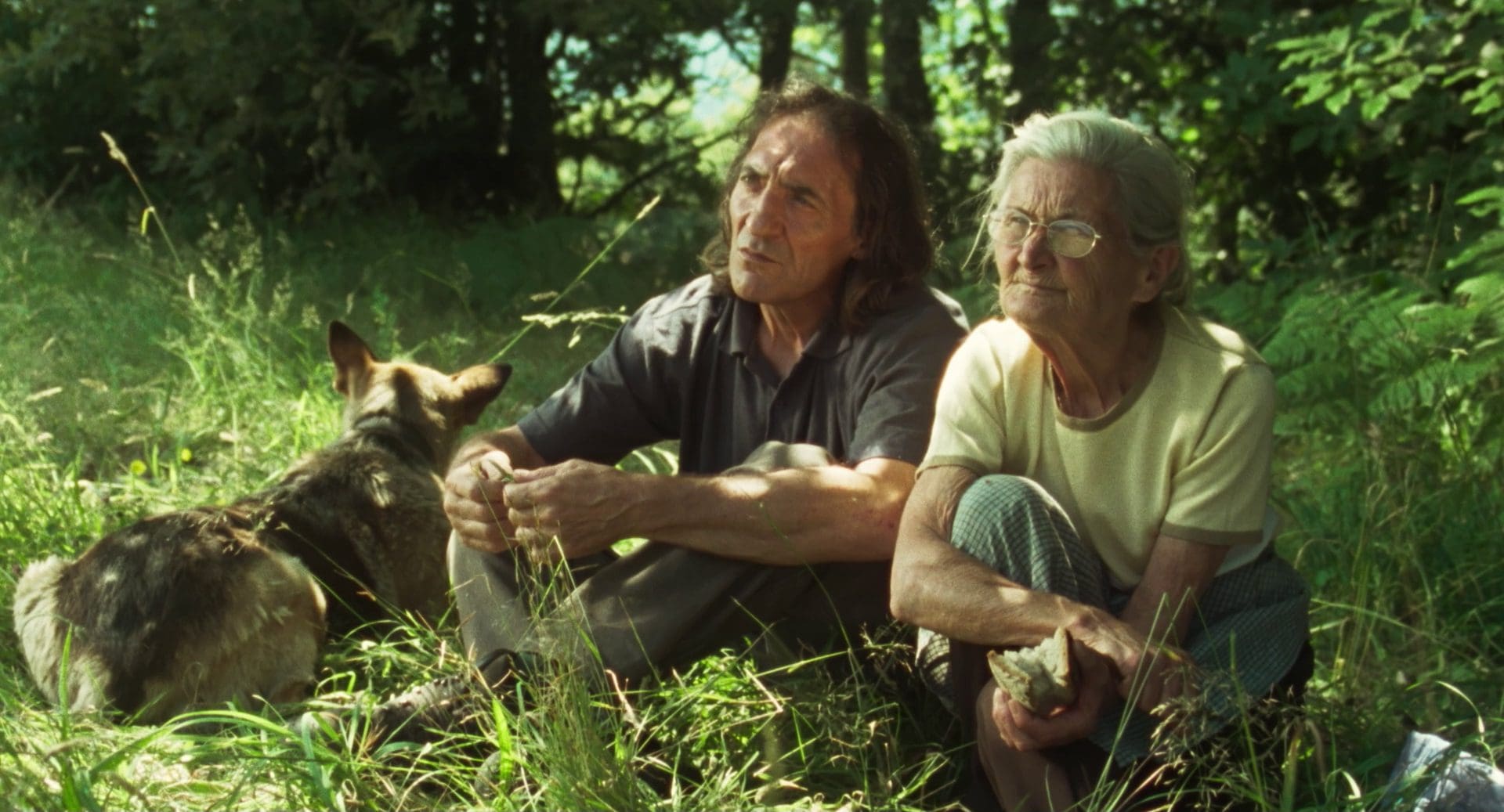
Fire Will Come, the third feature from director Oliver Laxe, is a film about isolation. Not the isolation those of us living in the COVID-19 era have grown so accustomed to, but the old fashioned social and geographical variety. Set in a rural, mountainous section Galicia, Spain, it follows Amador (Amador Arias) as he returns home after a two-year prison stint for setting fire to one of the area’s lush mountains. As Amador and his mother Benedicta (Benedicta Sánchez) try to eke out a living from their small plot of land, he struggles to rejoin the community despite his reputation. It’s a fairly simple plot and one that goes exactly where you expect given the title, but Fire Will Come creates meaning through its mood and sense of place rather than its plot.
From its opening shots, Fire Will Come establishes that much of its captivating power will come from its visuals. A black screen accompanied by soft, outdoor sounds slowly morphs into eerie shots of the woods at night. Lights briefly illuminate the denuded trunks, but we can’t tell from where at first as they slowly arc through and above the forest and the result is almost otherworldly, as if we’re watching the slow exploration of another planet. That sensation is only heightened when the trees suddenly begin to crack and fall, seemingly pushed over by some massive beast we only later learn is a group of bulldozers. It’s a striking set of images, but one Laxe leaves essentially unexplained, allowing them to set the film’s lonely, inexplicably foreboding mood without providing any real explanation for them.
Though Laxe and co-writer Santiago Fillol launch into the film’s plot directly from there, Fire Will Come remains most meaningful in its dialogue-less moments. When Amador returns home unannounced, the audience expects Benedicta to react with joy. Instead, she stares at him, stunned. Though she eventually asks Amador if he’s hungry, the silence before that fills with everything they don’t say. His silence suggests he doesn’t know if she’ll welcome him back at all, hers that she may either not be happy to see him at all or that she’s tempering her joy out of fear of losing her son again. And while Benedicta does eventually show Amador she’s happy to see him–after she asks if he has to go back to prison at any point and before quickly fleeing the room again–the silence remains.
Indeed, though Amador and Benedicta’s lives provide the film’s loose plot, it’s more an exercise in experiencing their lives and surroundings than investing in them. Whether it’s a scene where Benedicta waits out the rain by standing under the alcove created by a giant old tree or a shot where Amador and the family dog lounge on a mountainside with the verdant terrain in the background, the film is filled with moments of quiet beauty that emphasize the slow, simple pacing of the characters’ lives.
A large part of what makes those scenes so striking is cinematographer Mauro Herce’s work and one of the film’s best scenes is a perfect melding of image, story and performance. While walking their cows through the countryside, they pause in a sun-dappled spot to eat lunch. As they muse over two nearby eucalyptus trees that have grown much higher than the surrounding flora, we see a shot of those very trees gently swaying in the breeze. It’s a beautiful, calming moment, but it’s not meaningless. As Amador notes, the trees aren’t native to the area and they often kill off other plants. Benedicta, seemingly unperturbed by her son’s sudden turn in the conversation replies simply, “if they hurt others, it’s because they hurt too.” It’s safe to assume she’s at least in some part talking about her son in that moment and while that moment could seem heavy-handed, it’s precisely because Fire Will Come is so relaxed and frank that it manages to make that moment feel true.
That said, the unhurried pacing and loneliness the film conveys so well throughout is precisely what makes the film’s final act, when it delivers on the promise of the title, so incredible. As the plot essentially falls away until the film’s final moments, Laxe and Herce capture one stunning image after another of a raging wildfire. The scenes of local firefighters struggling to control the flames as embers and ash fill the air feel downright apocalyptic and the way the film’s previous calm suddenly and irrevocably morphs into chaos hits almost too close to home. And while some viewers may be left unsatisfied by al the plot threads leave unaddressed, it’s impossible to deny how much Fire Will Come still manages to resonate.

